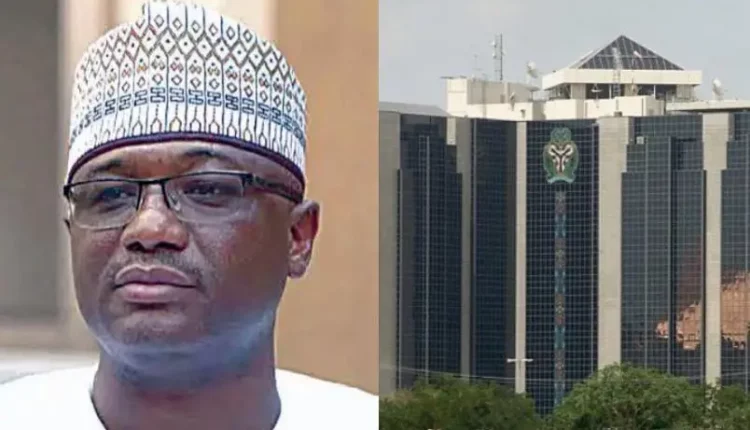Addressing inflation requires more than monetary policy, says MPC member
A member of the Central Bank of Nigeria’s Monetary Policy Committee (MPC), Prof. Murtala Sagagi, has highlighted the complex nature of Nigeria’s inflation challenges.
Sagagi said mere monetary policy readjustments will have a limited impact on inflation rates without simultaneous efforts to tackle the underlying issues of insecurity and food shortages.
According to his statement during the last MPC meeting held between 26 and 27 February, the country needs a comprehensive approach to tackle inflationary pressure.
Read Also: 300-Level female student dies as fire razes varsity hostel
In recent times, Nigeria has faced persistent challenges with inflation, with rates often driven by factors such as rising food prices and insecurity, disrupting agricultural productivity.

These issues have contributed significantly to the country’s inflationary pressures, making it imperative to address them comprehensively.
At the last MPC meeting, the CBN raised the benchmark rate to 22.75 per cent as a means of addressing the pressure.
According to the National Bureau of Statistics, the country’s latest annual inflation rate jumped to 31.70 per cent from 29.90 per cent a month prior, primarily fueled by a continuous surge in food prices.
In his statement, Prof. Sagagi highlighted factors that have rendered previous adjustments in the Monetary Policy Rate ineffective.
He cited a weak connection between the banking sector and the real economy, with only a few sectors accessing formal bank loans.
Additionally, a small percentage of the 35 million small and medium enterprises, which contribute significantly to output, have access to formal loans.
He also said the structural nature of food inflation, a major component of core inflation, remains a challenge, with no clear path toward achieving food security in the medium term.
This situation, he said, suggests that short-term inflation control measures often have negative impacts on medium-term growth.
Read Also: Police foil kidnap attempt on Buruku-Kaduna highway
“Since early 2022, the reduced confidence in Naira induced many Nigerians to take refuge largely in the US Dollar. Also, the country’s balance sheet, macroeconomic indices, and deteriorating business conditions scared away foreign investors, leaving only a handful of speculative portfolio investors.
“This coupled with massive currency speculation led to the free fall of the Naira, thereby worsening the inflation. In view of this, I would be more inclined to ascribe the current price instability to
(a) domestic policy inadequacies and (b) internal structural rigidities rather than any external factors such as the prolonged Russia-Ukraine conflict and other global volatilities.
This does not, however, imply that global dynamics are inconsequential,” he said.
He summarised recent and systemic policy actions and inaction that engender macro-economic instability including the border closure affecting food and livestock movement, misuse of monetary tools, poorly-implemented Naira redesign, removal of fuel subsidy without social impact plans, and exchange rate unification causing Naira depreciation.
Systematically, he argued that issues like lack of crude oil refining, agricultural neglect, and mismanagement of subsidies also contribute to Nigeria’s economic instability.
Read Also: We’ll impound vehicles transporting human beings with animals – FRSC
“Considering these, it is my view that monetary policy considerations (i.e., readjustments) will have a limited impact on inflation rates unless they are complemented with efforts to address insecurity and food shortages.
This is in addition to a holistic and disciplined roadmap for economic and social rejuvenation,” he said.
Meanwhile, Muhammad Abdullahi, the CBN Deputy Governor, Economic Policy Directorate, speaking Wednesday about the shifts in the conduct of the monetary policy, said CBN is migrating from monetary to inflation targeting.
During his presentation at the CITI- CEEMA Macro Conference in London, he said the current monetary policy implementation aims not only to tighten credit through an increase in interest rate but to also reduce borrowing for consumption; increase savings; decrease banking system liquidity to an optimal level and dampen aggregate demand in the short term.
This, he said, will reduce money supply, anchor inflation expectations, and eventually reduce inflation.
“We are confident that the new CBN’s monetary policy initiatives would go a long way in improving the impact of monetary policy actions on the Nigerian economy,” he said.
Premium Times



Comments are closed.